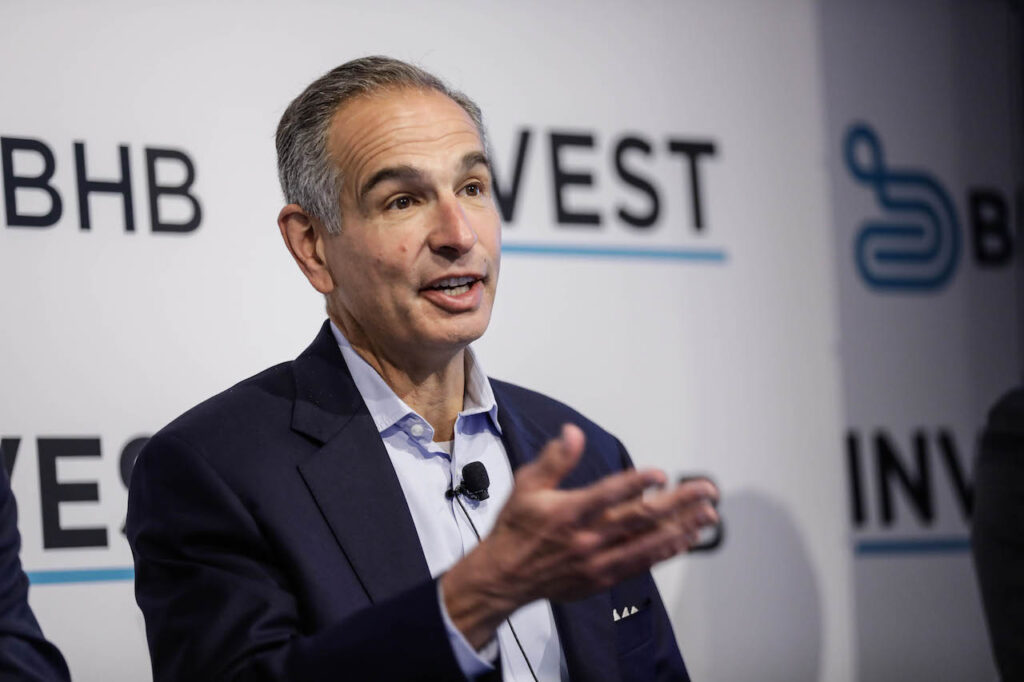While private equity investors continue to look for new opportunities in behavioral health, there is one area that is still relatively uncharted: serious mental illness (SMI) care.
Caring for the SMI population can be very challenging and requires a multipronged approach, as well as a robust patient engagement plan. Due to these challenges, SMI care may require looking at new payment and care models. Meanwhile, PE investors typically gravitate towards models and organizations with a proven track record that can scale.
Still, SMI is an area that is ripe for disruption. The economic cost of SMI is more than $300 billion each year, according to SMI Advisor. Additionally, the lifetime cost burden of a patient with SMI is roughly $1.85 million.
“SMI is an important area to address,” Terry Hyman, managing partner of Northwood Healthcare Partners, told Behavioral Health Business. “It has the highest level of correlation and impact on the total cost of care of any behavioral health component. … The challenges are that it’s a very tough population to reach and to treat. It requires a relatively labor-intensive, multi-headed, complex set of capabilities that you need to bring to improve the health of the member or patient.”
Northwood Healthcare Partners is a private equity firm specializing in health care. It has previously invested in SUD provider Summit Behavioral Health.
Some PE-backed behavioral health organizations offer a continuum of care, including inpatient services, which cater to patients with more serious behavioral health conditions. For example, Webster Equity-backed Oceans Healthcare provides inpatient and outpatient behavioral services.
However, these types of businesses can be challenging to scale.
“PE has a fairly extensive track record in mental health and the focus has shifted over time. In recent years, say the late 2010s through 2022, PE investors were increasingly focused on creating platforms that were vertically integrated along the care continuum, from inpatient psych to residential to PHP and IOP,” Rebecca Springer, lead analyst for healthcare at Pitchbook, told BHB. “This is still an attractive model as it allows patients to step up and step down in acuity while preserving care continuity. However, it can also be challenging to scale because you have to assemble and integrate different pieces in each market.”
Founded in 2007, Pitchbook is a data and research firm focused on the global capital markets.
Many patients with SMI need more supportive services after they are discharged. This likely means integrating wrap-around services, including housing, nutritional, physical and social needs. It’s a “tough execution,” Hyman noted.

Instead, many investors focus on the lower-acuity side of care, which caters to a broader population and doesn’t face the same challenges.
“Over the past year or so, we’ve seen investor interest focus much more on lower acuity, outpatient mental health – so, talk therapy, and maybe you add PHP/IOP, Spravato, or TMS,” Springer said. “These are more readily scalable, including offering virtual care. They also tend to be smaller and less capital intensive investments, making these deals doable in the current financing environment.”
Medicaid market
Another critical factor in SMI investment is reimbursement. People with SMI are over-represented in the Medicaid space. In 2015, Medicaid covered 26% of adults with SMI, but only 14% of the total adult population, according to Kaiser Family Foundation.
Traditionally, PE-backed companies have skewed heavily toward commercial payers. Research conducted by Pitchbook and Definitive Healthcare demonstrated that commercial insurance paid for most claims from private equity-backed mental health providers. Specifically, commercial insurance accounted for 86% of total claims and 92% of total charges from these providers.
“So commercial has historically been the focus,” Springer said. “That said, PE is becoming increasingly comfortable investing in Medicaid-heavy businesses. There are many healthcare specialist firms out there that [have] a lot of operational depth and will intentionally build portfolios that are diversified across payer types, including Medicaid. For these firms, having a higher proportion of Medicaid reimbursement in the mix is not going to be a problem in and of itself.”
Still, many PE investors are cautious about a business that leans heavily toward the Medicaid population. In part because Medicaid regulations and reimbursement vary state by state, which could impede expansion plans. Hyman noted that commercial insurance plans are less likely to differ as much state by state, making scale easier.
Businesses looking towards value-based and capitated arrangements could be prime for Medicaid, but it would take some leg work to integrate different parts of the health care system.
“Medicaid is a state-by-state process, but it is a place where the [providers] are getting paid for the total cost of care, and the ability to impact the total cost of care is very high,” Hyman said. “But you have to integrate mental health, physical health, and many of the social determinants of health in order to affect the well-being of the patient.”
The future could be venture
While private equity may be slow to take bets on SMI care, venture capital firms could be ready to invest in companies doing innovative care in the space.
“I think [SMI] often requires a new model of care. Private equity is less about building a new model than expanding a model that has proven efficacy,” Hyman said. “So I actually think that the venture community is well suited to do the work to build the models, in some ways better suited than classic private equity.”
Over the last few years, several startups focused on SMI care have come onto the market, including Vanna Health, Amae and firsthand.
Because of the total cost of care associated with SMI conditions and the lack of available services, several venture capitalists see this as an area prime for innovation.
“If you get outside of a major city, there are very few [options for SMI care]. So, serious mental illness has been a big area of focus for us. There’s a lot of room for innovation,” Dr. Ben Robbins, a trained psychiatrist and general partner at GV, previously said at BHB’s INVEST. “Serious mental illness is different from other parts of the healthcare ecosystem because it changes people’s life trajectory so dramatically. We do a lot of work around peers trying to layer in novel approaches to how you engage somebody with SMI. And we’ve had a lot of success.”
GV, previously Google Ventures, was founded in 2009 and has over $8 billion in assets under management. Its portfolio includes 400 companies.The venture firm has deployed over $1.2 billion into health care and life sciences companies since 2020.
GV has already invested in new types of SMI care. In 2023, it invested $28 million in firsthand, a New York-based startup that uses a peer-support model to help patients with SMI access care. firsthand uses a different model than many traditional providers. It is focused on the engagement piece of care rather than the care delivery.
But it isn’t the only venture-backed startup with a new approach to the care paradigm. Dr. Thomas Insel, former NIH Mental Health director, co-founded a company called Vanna Health, which uses a for-profit model to connect patients with SMI to community resources.
“We’re quite convinced that there’s a business case to be made, because these are the most expensive patients in many health plans, including in Medicaid,” Insel previously told BHB. “And we’ve seen this in the markets that we’ve looked at – these are very expensive patients. But importantly, the expense is not on the behavioral health side; it’s on the medical side.”
Companies featured in this article:
firsthand, GV, Northwood Healthcare Partners, PitchBook, Vanna Health



